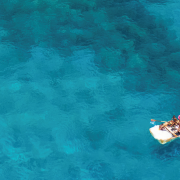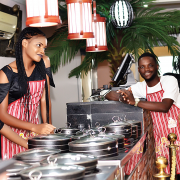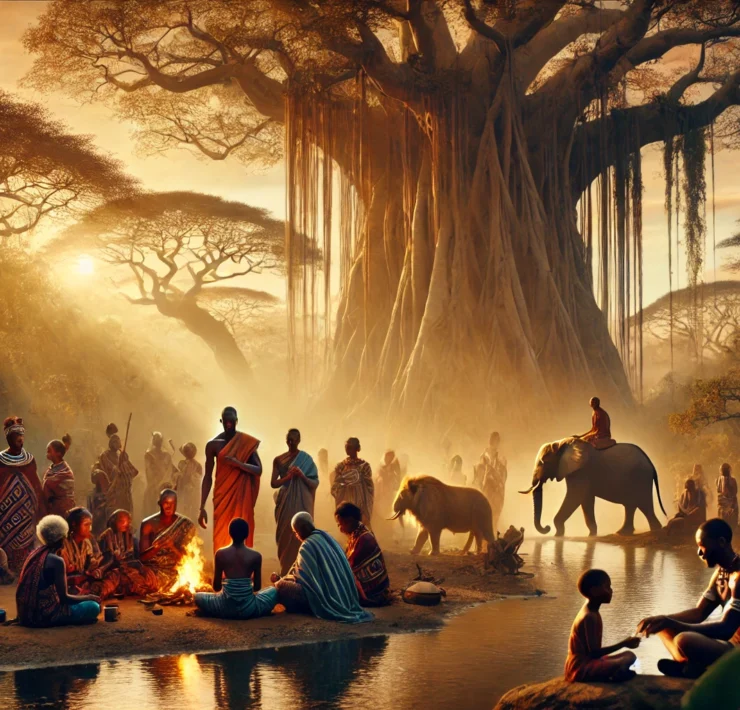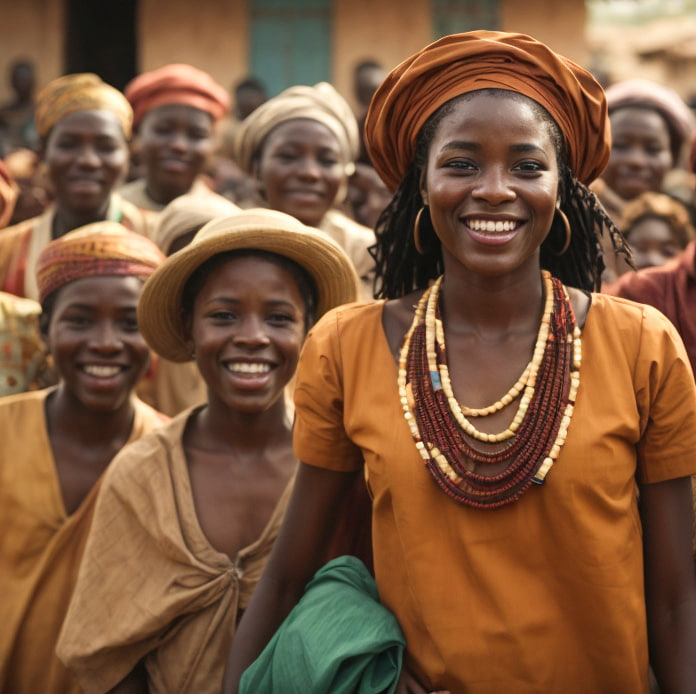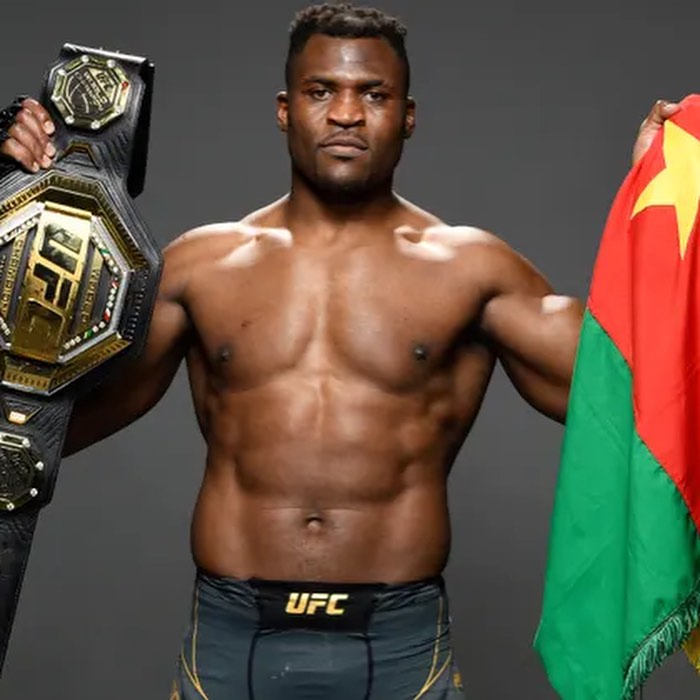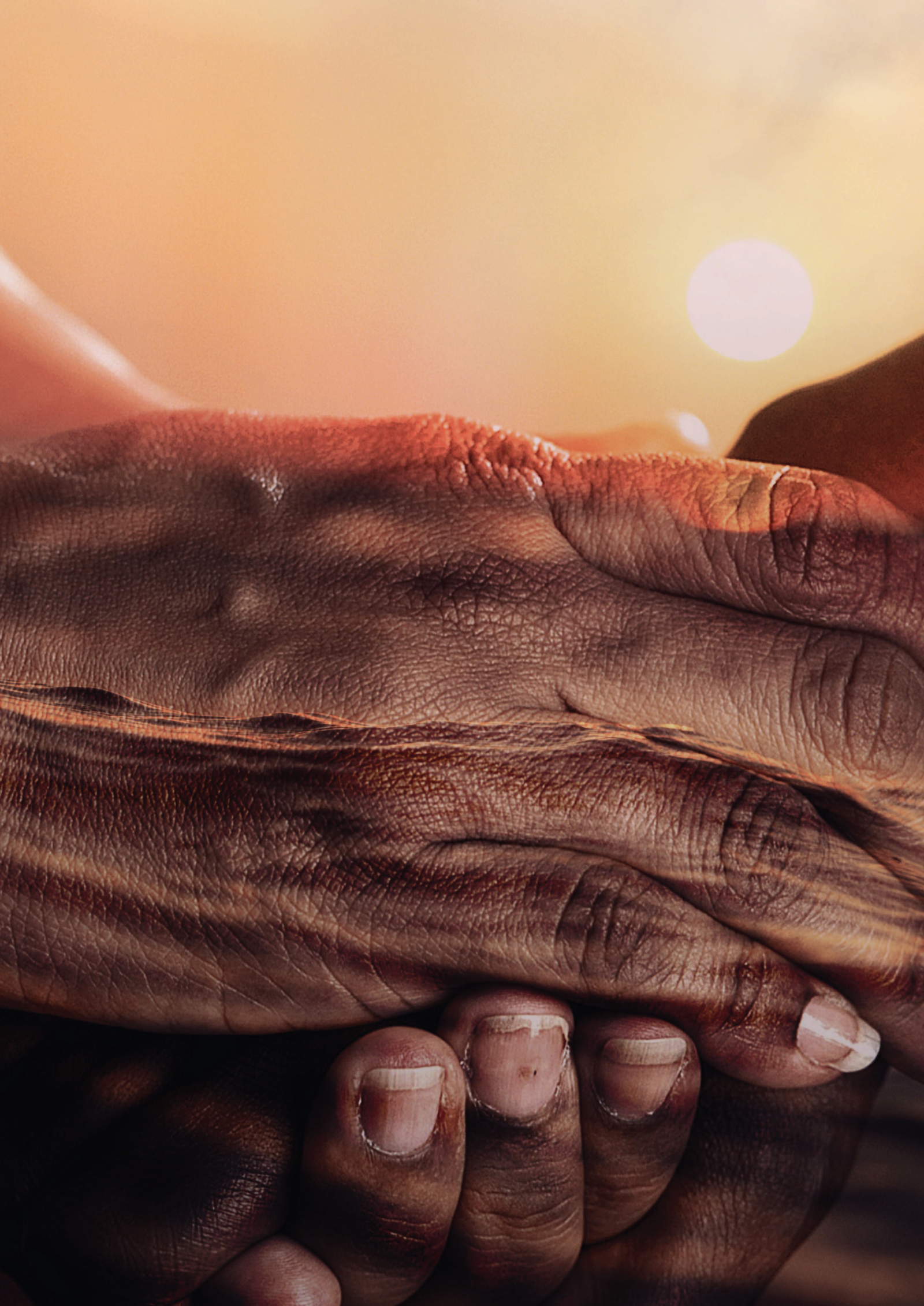
Samuel Phillips is a writer, graphic designer, photographer, songwriter, singer…
Read Next
OUR AFRIKAN HERITAGE OF LOVE AND HUMANITY
Seeing the shift and the many changes that have hit Afrika over the course of the decades and how most Afrikans are fast losing their connection to the Afrikan pathway of wisdom, makes me think we have not been paying accurate attention to the truth about the original thoughts of the Afrikan ancients. I hear Afrikan scholars, media personalities, social media influencers or even average Afrikans talk about going back to our Afrikan heritage, which is a great thing, except that most of them see the return to the Afrikan heritage only from the place of “freedom” from the white man’s religion (Christianity), which they claim was the “chain” that was used to enslave Afrikans. I understand their mind, for it is clear from historical records and stories told, that the white slavers were quite quick to show the black slaves the portions of the Bible that said slaves or servants must honor their masters, but wouldn’t show them from the same Bible that God is love and thus all men must treat others with love just as they want to be treated. Or that the Bible actually is about the equality of all men before God. I personally believe that Christianity as a religion (not as a pathway to truth and life which it was meant to be) was used by the white man to subject and deceive the good-hearted Afrikans to slavery of the mind and the demonization of the Afrikan way of life, which they called primitive. But I am not also stupid, so I must subject my mind to critical thinking and analyses of the big picture playing out in our very lives. Some Afrikans now also claim that God and Jesus are the creations of the white man’s thinking. I have written about this in one of my articles titled Jesus in Afrika’s History, so I won’t really say much about that here. But my thought is this; while we are still debating on the issue of freedom from the white man’s religion that created slavery of the Afrikan mind, can we at least start to put to work the very heritage that we still have from our Afrikan forefathers and which we are already fast losing if we don’t do something about? I speak of our heritage called Ubuntu. We can at least begin the narrative of change from there.
Hypocrites don’t make changes, they like unending debates
We have become too professionalism conscious, too technology conscious, too white man’s way of life conscious, too anti-Christianity conscious, too self-hating that we have lost our Afrikan simplicity and humanity. No Afrikan needs a degree in the white man’s University to treat others with love, kindness and compassion. No Afrikan needs to be “brain-washed” by “the white man’s Christianity” to live a life of goodness, empathy and brotherliness. We don’t need to shame the so called white man’s religion to make ours more appealing. For that will be nothing but living in denial that we have been irresponsible with what we were given from time immemorial by our ancestors. We must restore Ubuntu, it is our Afrikan heritage. Meaning that, if there is anything to be freed from first, it is to be freed from the mindset which says that we can talk about how Christianity damaged our Afrikan way of life, culture, tradition etc and then not talk about how we are not even trying to live the Ubuntu way of life which we inherited from our forefathers. We can’t keep fighting to regain our Afrikan originality by hiding our heads in the sand when it concerns living the Ubuntu lifestyle, while at the same time we won’t stop blaming the white man and his supposed religion for our woes. It’s high time we called things what they are. We must tell ourselves that we have failed in upholding the truth and the indigenous knowledge systems of our forefathers and thus we must repent for that. An Afrikan proverb says “It is a bastard that points at his father’s house with his left hand.” We Afrikans have now mastered how to hold the white man’s chicken and chips with our right hand while pointing with our left hand to our father’s house that the white man “destroyed”. For while we banter and lament over the white man and whatever nonsense he has done in and to Afrika, we do not go back to tell ourselves the truth that we do not really want to let go of the white man’s game, delicacies and his capitalist tendencies. Prove me wrong if you can. We love the white man’s inferior knowledge that is just a few hundred years old while calling ours which has been for millennia, primitive or alternative. We love his inferior medicine that kills more than heals while calling our indigenous Afrikan medicine witchcraft. We love his inferior lifestyle of individualism, greed, capitalism and superiority complex, his twisted educational degrees that gather information but no wisdom, his technology that will only make man dependent on machines, we appreciate his mindset because it makes us feel like heroes when we use them and then turn back to say the white man is the demon that devalued our Afrikan heritage. We have somehow mastered the evil art of crying foul like victims and at the same time won’t stop sleeping in the same bed with the victimizer. Hypocrites of the worst order! No one should bite with his teeth the very meat he forbids. That is simply treacherous. For if we are not careful we will just be like the foolish Boko Haram sect whose ideology says “modern education is an abomination” but at the same time they use the weapons and the technology that the “modern abomination” created, to fight their so called holy war for their holy god. Foolishness of the highest order if you ask me. Africanism and the subject of emancipating Afrika must not be subjected to such madness of the mind and hypocritical reasoning.
What is Ubuntu?
Ubuntu clearly goes beyond a set of definitions, so to give an explanatory theory of Ubuntu, let me share an excerpt from an article written by Dr. Mfuniselwa Bhengu.
“No person exists in and out of himself/herself. You exist physically only as you are immersed in an ocean of life-giving air. One exists as a man only because you have participated from the moment of birth in a world of human beings and culture. You are a self-in-a-world, not just a self. “To be” is not only you and the world, but it means to co-create a life world. We permeate each other; we are present in each other. We influence and form each other’s personality. We exude feelings and actions, which help determine the feeling tone of our home, our class at school, the other person with whom we are talking. We are constantly offering good or not-so-good possibilities to some situation. The need to think afresh about moral problems is ever present and particularly great in a period of rapid economic and social change and rapid advance in knowledge of human nature. In the pages that follow, it is indicated that Ubuntu is an instrument of peace. Therefore, to heal the wounds of our unpalatable and painful history, and the world, Ubuntu, it is argued here, is one of the best medicines to use because it is the key to the creation of a better society. Through Ubuntu we are weaving a cord of destiny – a destiny that is beyond the reach of the spirit-forms, and should they (spirit-forms) try to ascend to that destiny, they will break their tiny toes. Once we reach that destiny, everybody, friends and foes alike, will preach it to the world. This philosophy (Ubuntu) is not like a ship that can sink, but it is like a sea on which many ships sail. It is not a dogma; but a set of attitudes to peace, justice and equality. It is the light that illuminates the entire world. We need to embrace Ubuntu in such a way that when we see a woman, whether black or white, we say, “You are my sister”, and when we see a man, whether rich or poor, whether white or black, we say “You are my brother”. Once we achieve this level, the night would be over and the day would have begun to embark on our journey towards reaching our destiny. We live in a time of cultural disarray and cultural decay: an age filled with ruins and fragments of morality. Hence, our intellectual landscapes are littered with allegorical tales of deterioration rather than dramative narratives of reconciliation. Our spiritual and social “Being” is benumbed and chilled to a state of impotency. Our ethics have become fragments of moral decay – where the generation we live in, has become insensitive to the presence and flow of the life-saving element of Ubuntu within the communal veins of our society. We have thus given in to forces that are leading us to the point of self-hate and self-destruction. This is being evidenced by the social ills that have become a plague to our human society. Human interest is the basis of all value and that human fellowship is the most important of human needs. I strongly believe in humanism because it has taught me, and many others, to value human dignity. It has taught me that all human beings are born free and equal in dignity and rights. You possess human dignity if and only if you maintain it within yourself and you want other people to recognize it. No one gives you human dignity. People can only acknowledge and affirm it. You nurture and nourish it yourself; if you have self-respect. Healthy self-worth shows that you have self-respect. Dignity goes with worth. Decency towards others comes from your sense of dignity. You treat other people decently if you treat yourself in that way. We are not able to give to others what we ourselves do not have.”
Let us secure the Afrikan heritage
The above excerpt gives a broader perspective of what Ubuntu can do for our global village, but we must first endeavor to give life to Ubuntu right here at home, for like they say, charity begins at home.
So while there are lots of things to detox the Afrikan mindset of, and while we work towards doing that, can we just simply begin to live out the reality of the very heritage we still have left from our forefathers that we so much want to return to their days? We don’t need the permission of any Afrikan government to love ourselves as Afrikans. We don’t need visas or passports to spread the love and the Afrikan brotherhood across Afrika and in the diaspora. We don’t need borders to be removed (even though it is inevitable) before we begin to help ourselves rise. We can begin by breaking these mental borders that we have allowed to fester in our minds about our Afrikan brothers. We hate ourselves even more than we hate that the white man damaged our Afrikan history and narrative. Love conquers all things, thus we cannot do anything to change the negative narratives of the Afrikan life if we are not ready to do so through love and brotherhood of the Afrikan people both at home and in the diaspora. We must walk away from this hypocritical way of judging the evils of the white man, while at the same time not giving room for the true Afrikan spirit to rise. That will be a failure on both ends of the stick and a disappointment to our beloved forefathers that we so much wished to be like.
Subscribe now for updates from Msingi Afrika Magazine!
Receive notifications about new issues, products and offers.
What's Your Reaction?
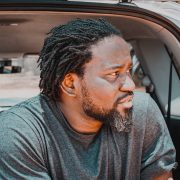 PIN IT
PIN ITSamuel Phillips is a writer, graphic designer, photographer, songwriter, singer and a lover of God. As an Afrikan content creator, he is passionate about creating a better image and positive narrative about Afrika and Afrikans. He is a true Afrikan who believes that the true potential of Afrika and Afrikans can manifest through God and accurate collaborations between Afrikans. Afrika is the land of kings, emperors, original wisdom, ancient civilizations, great men and women and not some road-side-aid-begging poor third world continent that the world finds joy in undermining.








